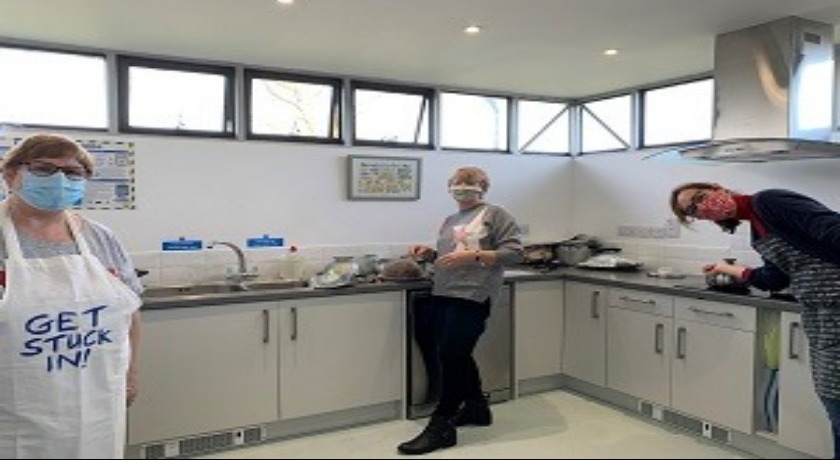 In this reflection, Maria J.Y. Lee, a United Reformed Church Related Community Worker (CRCW) based in Chelmsford, talks about the impact of Covid-19 on vulnerable and elderly people who suddenly found themselves isolated due to the pandemic, and how a ray of hope and connection was brought to them.
In this reflection, Maria J.Y. Lee, a United Reformed Church Related Community Worker (CRCW) based in Chelmsford, talks about the impact of Covid-19 on vulnerable and elderly people who suddenly found themselves isolated due to the pandemic, and how a ray of hope and connection was brought to them.
Maria and her CRCW team support members of ‘Good Companions’, a dementia-friendly group which benefits people who live with dementia and aims to improve the quality of life for older members of the community. Read about their experience throughout the pandemic:
Before Covid-19, we met on the first and third Wednesday of the month for two-hour sessions and we gathered around 20 people each time. The sessions included dementia-friendly activities, hymns, discussion, fellowship, creative prayers, and a light meal.
One of the key resources for Good Companions (GC) is Walking the Way, the United Reformed Church’s focus on whole-of-life discipleship, because I believe that discipleship is for everyone at any stage of their Christian journey and its invitation is open to any generation – it is for us all.
As a result of the pandemic, our GC lifestyle was tipped upside-down. Most members are elderly, but that’s not to say they weren’t active and independent people. However, we can see the negative impact lockdowns have had, leaving several of our friends dependent, lonely, and isolated.
Day to day activities, such as walking, cooking, or washing, became challenging for some, and reduced mobility led to instances of muscle weakness, joint pain, weight-gain, and disrupted sleep patterns. Gradually, many of our dear friends became house bound.
Not only has Covid-19 altered peoples physical health, it has also affected their emotional wellbeing. According to Age UK’s research, one in three (34%) of older people agree that their anxiety is now worse or much worse than before the start of the pandemic.
Many of the GC members told me that they are feeling down or depressed because they cannot socialise as they did before, their daily routine has slipped away, and they are worried about the future.
Of course, the pandemic has influenced all of us and many have experienced some form of poor mental health, such as depression, anxiety, and stress. However, at least a large section of the population are able to engage with others online, via social media and video calls. This was sadly not the case for most of our members.
We wanted to reach as many as we could during these isolating periods and so, as soon as the first lockdown started, I began producing a weekly newsletter.
I shared stories behind the hymns, well-known prayers, Deep Meaningful Conversation, and then, to my delight members responded and were willing to share their own testimonies, their professional experiences, poems, and prayer requests.
The newsletter became a communication tool, reaching out to members, and members were also engaged with each other. I delivered the newsletter to their door, and it soon became clear that for some, I was their only human contact. Although we maintained our two-metre distance, they were delighted to see me, and it was enough to feel cared for and loved.
To read Maria’s relfection in full, visit the CRCW news page.
